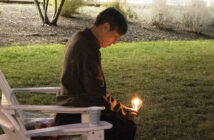As Lehigh has seen increases in liquor violations in recent years, the university’s medical amnesty policy works to provide students with support and mitigate the punishments associated with drinking.
Reported liquor law violations increased in 2020 by about 20%, spiking to a total of 363 violations.
According to Lehigh’s most recent Annual Security and Annual Fire Report, there were 303 reported liquor law violations in 2019. After the 2020 spike, that number decreased to 254 liquor law violations.
In fall 2020, Lehigh policies allowed only first-year students and those with specific circumstances back on campus due to the COVID-19 pandemic. Every student was placed in a single dorm and all classes were held online.
Jason Schiffer, assistant vice president of campus safety and chief of Lehigh police, said the increase in violations during the pandemic was not necessarily because more students were drinking on campus, but was instead due to the heightened sense of safety on campus at the time.
“People would call all the time about any type of gathering,” Schiffer said. “(If there were) three people in one spot, we were getting a call. They could have done nothing other than gather in the same physical space.”
About 81% of liquor law violations reported in 2020 were called in at on-campus residential housing, but Schiffer said this is not a strong indicator of where the violations were actually occurring. Instead, it suggests students return home from parties or other activities intoxicated and only become visibly unwell when they are back in their dorms.
Lehigh University enacted the medical amnesty policy in 2006, which states that students who call for help for themselves or others will not be charged with violations of the university’s Code of Conduct.
Instead, the student’s guardians are contacted and students are enrolled in therapy programs with University Counseling and Psychological Services. Student Affairs works closely with counseling services to identify the student’s actions and how the school can best support them.
Christopher Mulvihill, associate dean of students, said he has seen an increase in students seeking help for their peers after the pandemic but finds it hard to pinpoint a specific cause.
“We probably won’t know how the pandemic impacted this stuff for another ten years because it is still impacting,” Mulvihill said.
He said 10% of Lehigh students will have an interaction with the Office of Student Conduct in their four years on campus, though only 0.01% will have a second interaction. There are very few third-time offenders.
Mulvihill said the medical amnesty policy has worked to keep the Lehigh population safe as it ensures community members care for one another and provides education about dangerous situations.
He said he believes one of the most beneficial aspects of the policy is it applies to campus clubs, sports teams and Greek chapters. The Health Advancement & Prevention Strategies Office has held programs that focus on educating Greek organizations on their protections under the policy and advises them to seek help.
Maria Gregoire, a Peer Health advisor and the Health and Safety ambassador in the Health Advancement & Prevention Strategies Office, said she has seen an increase in calls from students and always encourages them to seek help when they are in need.
“Within this newer enforcement by Jason Schiffer, it is about protecting the students,” Gregoire said. They just want the kids to be safe.”





Comment policy
Comments posted to The Brown and White website are reviewed by a moderator before being approved. Incendiary speech or harassing language, including comments targeted at individuals, may be deemed unacceptable and not published. Spam and other soliciting will also be declined.
The Brown and White also reserves the right to not publish entirely anonymous comments.